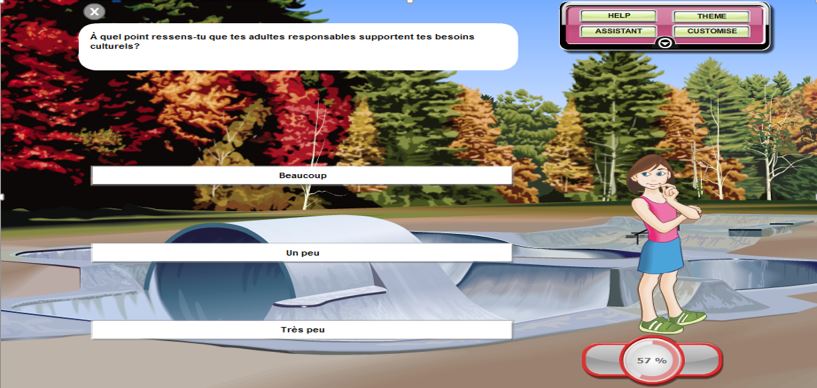
New software allows youth, caregivers, and child welfare professionals to complete questionnaire online
After 2 years of extensive work and consultation, OACAS is launching a revised version of the Assessment and Action Record (AAR).
Children’s Aid Societies use the AAR to develop a plan of care for children and youth in care from the ages of 0 to 21+. The AAR is completed with children and youth who have been in care for at least 1 year. It relies on a developmental approach in which a child’s progress is examined in a holistic way by examining seven dimensions on a yearly basis. The tool consists of questions that identify children’s strengths with the aim of achieving better outcomes for them that lead to greater success in adulthood.
To revise the AAR, OACAS gathered feedback from across the province and consulted extensively with frontline workers in the child welfare sector, foster parents, Elders from First Nations, Métis, and Inuit communities, colleagues in Quebec, social workers and other clinicians, youth, Toronto’s Hospital for Sick Children, and the Ministry of Children, Community and Social Servicess. The changes to the AAR are backed by rigorous research findings on child development and well-being.
“Children’s Aid Societies take children’s development very seriously,” says Morag Demers, a Senior Analyst at OACAS who co-led the review of the AAR. “When a child or youth is brought into care, we don’t just let them languish. As a good parent, you’re always monitoring and planning for your child. The AAR ensures that Children’s Aid does for a child or youth in care the same thing that typically happens when a family sits around the dinner table: we talk about their dreams and hopes, as well as their ongoing needs.”
The review resulted in significant improvements to the AAR that
- Reduce duplication and make questions more child and youth friendly
- Reflect diversity in culture, ethnicity, language, and sexual orientation
- Enhance content on Indigenous heritage
- Better assess developmental milestones for children 0–6 years old
- Assess depression and anxiety symptoms in youth 18 years and older
- Reflect a youth’s immigration status
The updated AAR will be available to Children’s Aid Societies in January 2016.
If you would like more information, please contact Morag Demers at mdemers@oacas.org.